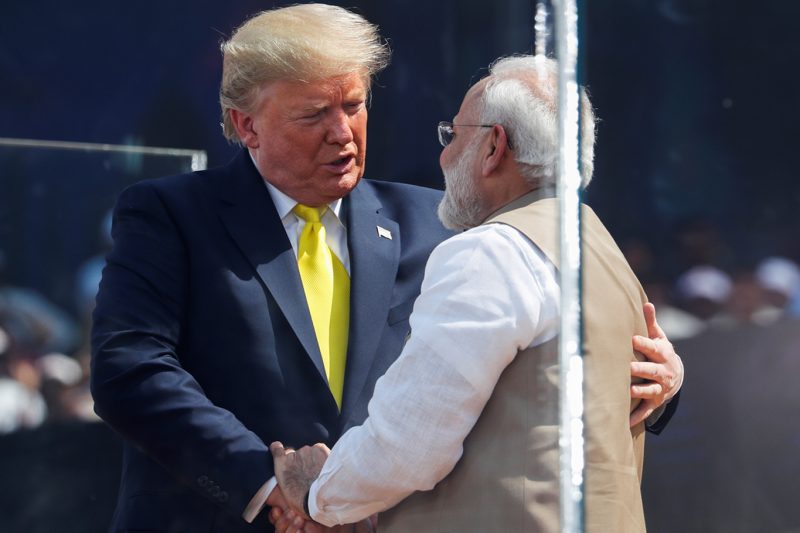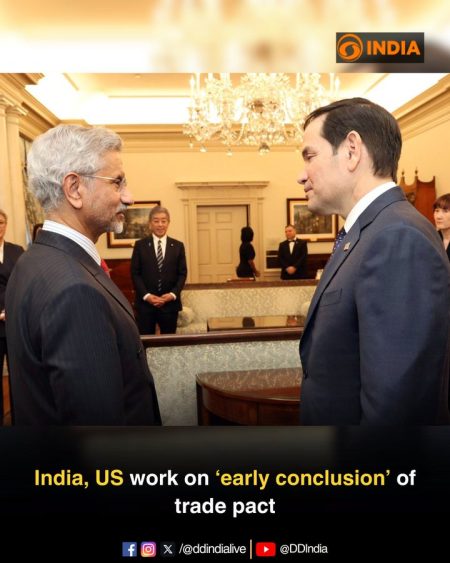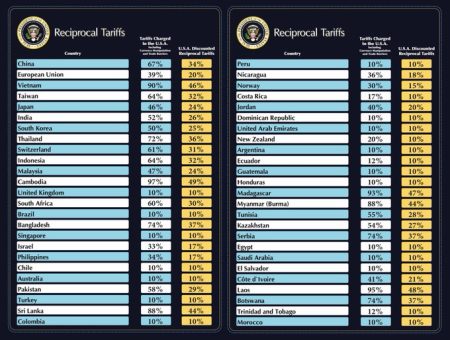 In September 2019, then-US President Donald Trump welcomed Indian Prime Minister Narendra Modi to Texas for the “Howdy, Modi!” event, which attracted around 50,000 attendees and was recognized as one of the largest receptions for a foreign leader in the United States. The following year, Modi hosted Trump in Gujarat, where over 120,000 people gathered. Trump subsequently lost the 2020 Presidential Election to Joe Biden.
In September 2019, then-US President Donald Trump welcomed Indian Prime Minister Narendra Modi to Texas for the “Howdy, Modi!” event, which attracted around 50,000 attendees and was recognized as one of the largest receptions for a foreign leader in the United States. The following year, Modi hosted Trump in Gujarat, where over 120,000 people gathered. Trump subsequently lost the 2020 Presidential Election to Joe Biden.
Now, at the age of 78, Trump is running for the 2024 Presidential Election as the Republican nominee against Kamala Harris, the Democratic candidate, amid Modi’s ongoing third term as Prime Minister. Recent national polls show Harris holding a narrow lead over Trump ahead of the election set for November 5.
If Trump regains the presidency, the ramifications for India will hinge on his foreign policy, trade relations, and the strategic partnership between the two countries. These outcomes will largely reflect the evolving geopolitical environment and Trump’s policy choices.
In celebrating 70 years of diplomatic relations between India and the US, leaders from both nations have committed to strengthening their strategic partnership, focusing on mutual goals such as combating terrorism, promoting Indo-Pacific stability, encouraging fair trade, and enhancing energy cooperation. Analysts often view Trump’s approach as more advantageous for India compared to Harris, primarily due to his strong stance against China and alignment with Russia. However, concerns persist regarding potential challenges in trade and tariffs under Trump’s administration.
The impact on India could be assessed across five key sectors: strategic partnership, immigration issues, regional stability, trade and tariffs, and economic consequences. Trump’s presidency may reinforce US-India cooperation in defense and counter-terrorism, particularly in countering China’s influence. Any changes in economic policy following his election could significantly affect India’s manufacturing and technology sectors, given Trump’s “America First” stance and protectionist tendencies.
Additionally, Trump’s immigration policies might not favor the Indian workforce, particularly concerning H-1B visas. A confrontational approach in South Asia could also affect India’s relations with both Pakistan and China.
During Trump’s initial term (2017-2021), India-US relations saw significant transformation, emphasizing strategic partnerships in response to China’s growing presence. Key agreements such as the Communications Compatibility and Security Agreement (COMCASA) underscored the commitment to counter-terrorism and defense collaboration. However, trade relations fluctuated, with Trump labeling India a “tariff king” and revoking its preferential market access under the Generalized System of Preferences in May 2019.
A recent report from Nomura suggests that a potential Trump presidency may still benefit India, as trade tensions could be mitigated by supply chain advantages, positioning India to thrive in a demand-driven growth model. The report concludes that the fundamental economic and strategic interests shared between India and the US are unlikely to waver, regardless of the election results.









